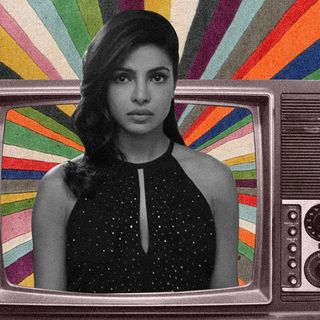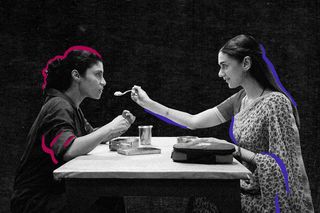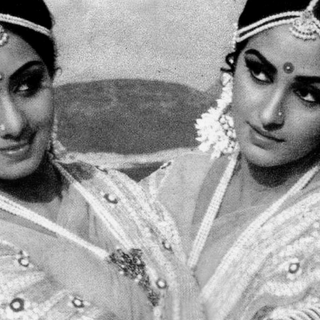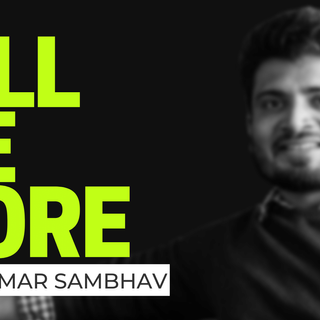
In ‘Ajeeb Daastaans,’ Caste Compels People To Lead Secretive, Manipulative Lives
The characters navigate their life choices using lies and deceit to survive a world set up against them.

At first glance, the characters of Netflix’s Ajeeb Daastaans appear to be just what the summary claims: victims of unexpected catalysts that break already-fractured relationships. However, when looking through the anti-caste lens, the complex relationships are more a reflection of the society they inhabit, a society that denies them authenticity, and therefore, breeds lies and deception. Although each story in Netflix’s new anthology is complex and nuanced in its own way, the one tether tying them together is the way caste acts as a predictable catalyst.
Neeraj Ghaywan’s “Geeli Pucchi” portrays the relationship between Bharti and Priya, in which their queerness brings them together, but caste tears them apart. Yet, to limit an anti-caste reading to only this story would be to deny that caste is experienced by everyone in our Brahmanical state — it is, therefore, a thread running through all four stories. In “Geeli Pucchi,” Ghaywan merely zooms in on the markers of caste and its implication, naming it and drawing attention to it because his intersection shapes the storytelling. However, caste is not an experience specific to those from the margins. Caste is an inescapable evil that denies humanity to everyone it casts a shadow on. Marriage, which is a fundamental characteristic and guardian of the caste system, intertwines patriarchy and caste to prison the sexuality of anyone who is not a cis-heterosexual Dwija-Savarna man. Dr. B.R. Ambedkar takes it further to call caste and patriarchy twins. In her work, historian Uma Chakravarti coined the term “Brahmanical patriarchy,” arguing that caste hierarchy and gender hierarchy helped build a Brahmanical social order in ancient India.
By approaching the stories from an anti-caste lens, one can better understand how the world around them conditions them to make the decisions they do. While some of their individual actions are harmful and motivated by caste and gender supremacy, it is the system that conditions them. In the case of Brahmanical patriarchy, which is essential “man’s inhumanity to man,” it dehumanizes everyone by denying them moments of embracing their truth and living it on their own terms. Whether it is Babloo, from Shashank Khaitan’s “Majnu,” who refuses to reveal the truth about himself to his wife, or Bharti, who conceals her Dalit identity from Priya, Brahmanical patriarchy is at play denying them from enjoying authentic living.
Related on The Swaddle:
How Caste Has Always Shaped Desire, Desirability
Yashica Dutt opens her Sahitya Akademy Yuva Puraskar-winning book, Coming Out as a Dalit, by saying, “Hiding one aspect of your identity is like leading a double life. You don’t feel like you belong anywhere.” And that is how we meet every character in Ajeeb Daastaans. Each one is hiding a part of their identity and living with the burden of not being able to share their humanity with those they love or live with. The most striking example is Natasha, from Kayoze Irani’s “Ankahi.” The need to hold onto a relationship that has social legitimacy in a Brahmanical patriarchal world, over one that is loving and warm, is not so much a choice as much as it is fear. It is the fear of being trapped in shame and isolation from the community that gives dominant-caste and -class women power and denies them the experience of authentic living.
In stark contrast stands Bharti, of “Geeli Pucchi,” who embraces her truth and draws power from that truth. Through the power that comes from living one’s truth, she challenges myths and lies held in place by the system that oppresses her. The final shot, in which she drinks from the metal teacup that is served to her as a reminder of her place at the table, does not centre an oppressed woman — instead, it throws the spotlight on a resilient, resisting woman. Bollywood and movies have always portrayed those from oppressed castes to appear helpless, in need of saving, and receiving ‘saving’ due to their incorruptible morality. Only ‘good’ oppressed people deserve the carrot; the rest must get the stick. Bharti is neither — she is not good, nor does she need saving. Her truth empowers her.
Clinical psychologist and author Harriet Lerner, in her bestselling The Dance of Deception, writes, “Under patriarchy, women are well schooled in pretending and deception.” According to her, deception in patriarchy is employed by women to protect themselves. “It has long been the woman’s job, whether in the bedroom or boardroom, to magnify men, making them seem larger than life by reflecting and mirroring them back to themselves.” In a Brahmanical society, women from marginalized castes also have to take up the role of magnifying dominant-caste women. This pretense, and deliberate exaggeration, is done because telling the truth would shrink those who ride on this myth of supremacy.
This can be seen when actor Swara Bhasker tweets, “Damned if we do, damned if we don’t,”when called out for taking space at a protest against the rape of a Dalit victim. Because to dominant-caste women, the pedestal belongs to them, and we, from marginalized castes, must fall in line to magnify. When actor Richa Chadda holds a broom with mud-make-up on her face, she believes it is her rightful place to tell the story of a Bahujan woman, because “if not her, someone else will.” However, “someone else” can almost never be a Bahujan woman. And if we don’t show up with applause, our criticism is dismissed as “angry tweets.”
One criticism by a dominant-caste writer of “Geeli Pucchi,” on the scene in which Bharti is reminded she is Dalit, reads: “This doesn’t sound like a conversation between two colleagues.”But as I write this, the story of a professor from an IIT screaming casteist slurs on a Zoom class is trending on Twitter. Caste has prevailed and dominated every aspect of life in the Indian subcontinent. But the “Annihilation of Caste” is a movement that is yet to gain support from those who claim we live in a post-caste world. Telling the truth about caste and its current inescapability is essential to living a life of authenticity because the foundations of caste and gender supremacy are dehumanization.
In an anti-caste world, marriage would not be a transaction like in Khaitan’s “Majnu.” Dominant-caste men would not have impunity like in “Khilauna.” Bharti would have time to cry over a heartbreak, and Natasha would not choose her marriage over love. In an anti-caste world, the portrayal of marginalized-caste folks would not be so singular and rare that we would have to put all our hope in it until the next one.
A version of this article incorrectly stated B.R. Ambedkar coined the term “Brahmanical patriarchy.”
Hannah Stephen is a copywriter by day and a writer running from pillar to post making sense of culture and community by night. Her writing explores the themes of digital culture, accountability culture, and envisioning an anti-caste world.
Related


Woe Is Me! “Why Won’t My Best Friend Tell Me Her Secrets?”
